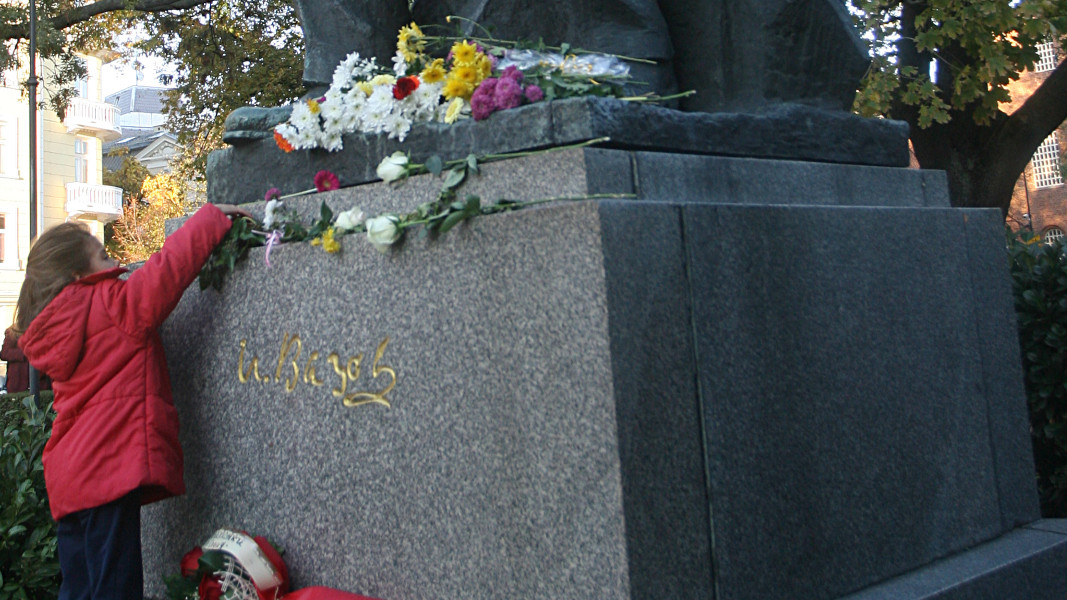They are called the “awakeners/enlighteners” of the nations because they awaken the Bulgarian spirit and the sense of national pride. They kindle the spark of self-awareness and community belonging, instil faith, drive away discouragement in order to unite Bulgarians in creation and education.
The idea of paying tribute to the Bulgarian awakeners and National Revival leaders arose 100 years ago, when the then Ministry of Public Education designated November 1 as "the holiday of the Bulgarian awakeners, a day to pay tribute to the memory of the great Bulgarians, from near and far, the builders of modern Bulgaria". The proposal was submitted by the then Minister of Public Education in the government of Alexander Stamboliyski, Stoyan Omarchevski. Some sources mention that the idea for the holiday was suggested to him in a letter from an ordinary peasant who wrote to him that the nation should pay tribute to the "great Bulgarians" who contributed to the Liberation of Bulgaria in 1878.
At that time, the Gregorian calendar was already established in Bulgaria, but the Bulgarian Orthodox Church continued to follow the Julian calendar, so instead of October 19, it celebrated the feast of St. John of Rila (Sveti Ivan Rilski) on November 1. Due to the great national respect for the saint from the Rila Mountain, this date was chosen:

"Let the Day of St. Ivan Rilski become the Day of the People's Awakeners, a holiday of the great Bulgarians, in order to awaken in young people a healthy sense of existence and interest in the active personalities of our past," reads the Proclamation for the Day of the Enlighteners, sent by Minister Omarchevski. "Our first concern is to turn the eyes of our youth to everything valuable and bright from our past and to associate them with this past, so that they can draw from it cheerfulness and confidence, strength and impulse to activity and creativity", we read in the proclamation which even today makes us think about the meaning of this all-Bulgarian holiday.
Today, when the ideals of these prominent personalities seem to be fading into existence, and young people are replacing books with electronic games, we live with the feeling that they seem to be neglecting spirituality and enlightenment.
And in order to have a future, young people "must know that life is only valuable when it is inspired by ideas, by aspiration. Only then can life be meaningful and significant, when it is overwhelmed by idealism, when souls and hearts tremble for the beautiful, the national, the ideal, and this is embedded in the images and creations of all our active citizens who awakened our people in the days of slavery, which led them to enlightenment and national freedom during the National Revival and which created eternal cultural values for them during their free life," noted Minister Stoyan Omarchevski a hundred years ago.
His words echo strongly in our hearts and urge us to wake up before it is too late.
Photos: library BGNES
When we have a special occasion where we meet relatives or friends, as a sign of respect and as a memory, we usually present them with a gift, complete with a beautiful card. In the past, the card received was kept as a cherished memory and even passed..
Holy Thursday is one of the two days in the Holy Week when we dye eggs for Easter. Tradition dictates that the oldest woman in the family takes on this important task, and the first egg is always dyed red. The Red Egg – symbol of the..
Today, the Bulgarian National Radio’s foreign language service Radio Bulgaria “speaks” 11 languages. Through the years, languages have been added, others have been dropped – something that happened to the Polish-language programmes. They were aired by..

+359 2 9336 661
